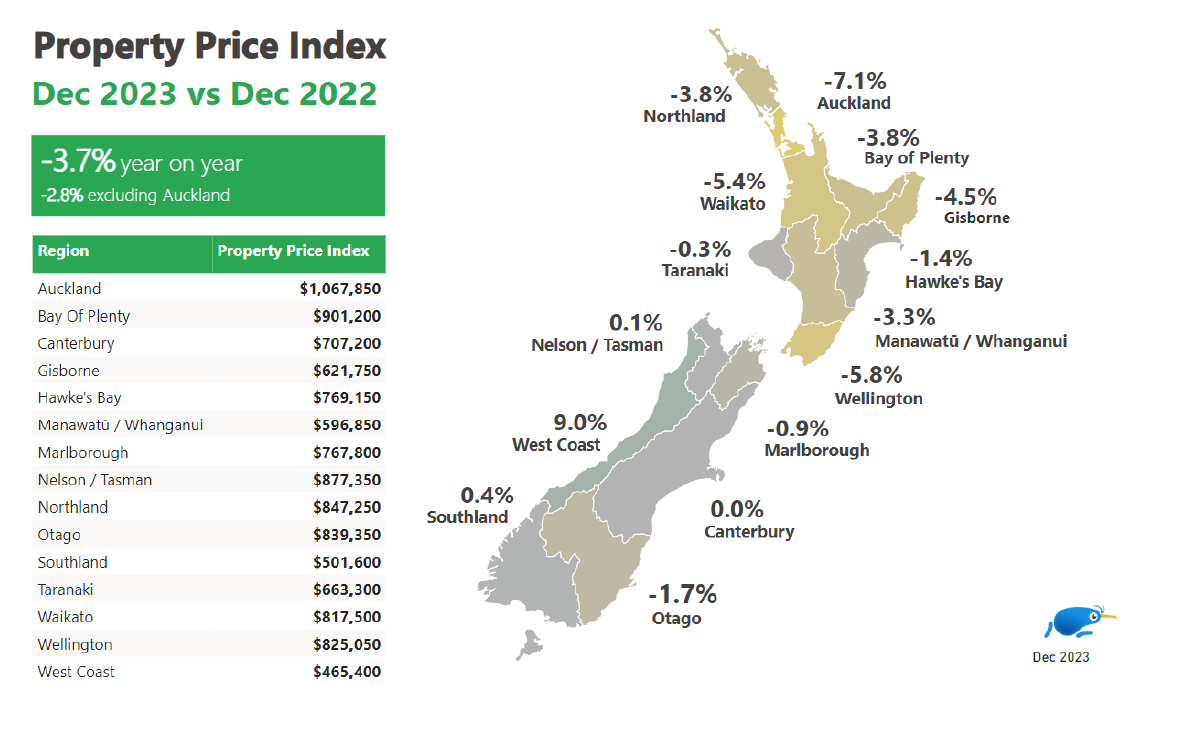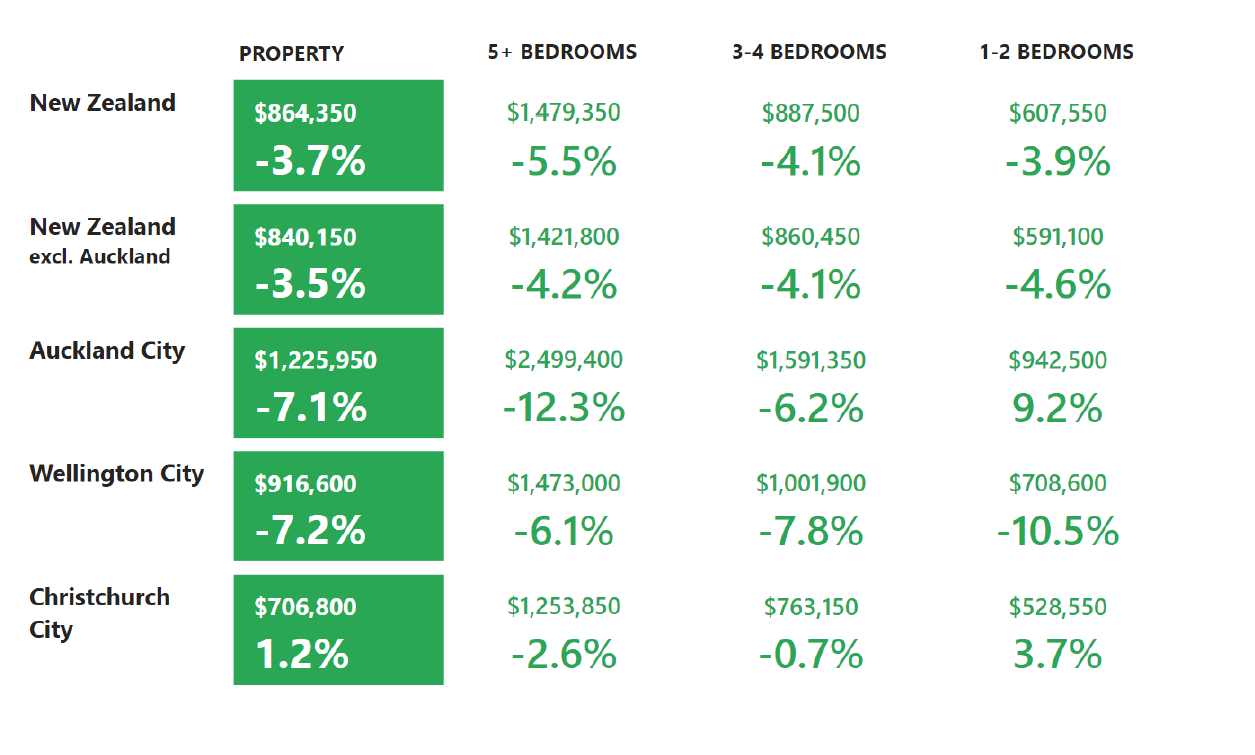Demand also down

Trade Me’s Property Price Index for December has revealed a slight dip in New Zealand’s property prices as 2023 concluded.
The national average asking price for a property stood at $864,350, marking a 3.7% decrease compared to the same period in the previous year.
Despite the decline, Casey Wylde (pictured above), Trade Me spokesperson, noted that the decrease is relatively minor when contrasted with consecutive months of double-digit drops earlier in 2023.
The property market has undergone significant shifts as both sellers and buyers navigated rising interest rates and inflation. However, the current trend indicates a return to normality.
“The property market has seen huge change in 2023 as both sellers and buyers have navigated rising interest rates and inflation but what we are seeing now is the market returning to normality,” Wylde said.
Major cities like Auckland and Wellington have experienced the biggest change, with prices falling by 7.1% and 5.8%, respectively. Wylde suggested that increased listings in these cities may be prompting sellers to adjust prices to remain competitive. The Waikato region closely followed with a 5.4% drop, resulting in an average asking price of $817,500.

And the priciest region is…
Auckland remained the priciest region, despite an $80,000 decrease, with an average asking price of $1,067,850. The Bay of Plenty secured the second spot with an average asking price of $901,200, primarily influenced by the Tauranga market where prices hovered near the million-dollar threshold.
Regional areas such as Nelson/Tasman and Northland surpassed some capital city regions like Wellington and Canterbury in average asking prices, reaching $877,350 and $847,250, respectively.
“When we look outside Auckland, we find some areas where homes are even pricier than in the cities,” Wydle said. “This happens because houses there are often bigger, making the average price higher. “In places like Wellington and Canterbury, you see a mix of smaller apartments and townhouses, which brings down the average price for the whole region," said Wylde.
Property prices up for smaller properties in Auckland, Christchurch
The demand for larger properties in major city centers has experienced a decline, particularly in Auckland, where properties with five or more bedrooms saw a substantial 12.3% decrease, averaging $2,499,400, Trade Me reported.
Auckland and Christchurch were the only major cities where prices increased for smaller dwellings with one to two bedrooms. For Auckland properties with two bedrooms or less, prices surged by 9.2%, reaching an average asking price of $942,500, while Christchurch saw a more modest increase of 3.7%, bringing the average price to $528,550.
Analyzing all properties, Pōneke experienced the most substantial decrease among the cities, declining by 7.2% overall to an average of $916,600. This decline was primarily influenced by a notable drop of 10.5% in properties with one to two bedrooms, resulting in an average asking price of $708,600 for properties of this size.

Demand significantly declines compared to October
December witnessed a substantial 30% decline in the demand for properties nationwide, marking the most significant month-on-month decrease in 2023. Wellington and Gisborne were notably affected, experiencing double-digit drops of 40% and 36%, respectively, compared to November.
Wylde attributed the decline in demand to seasonal factors, with Kiwis busy making plans for the summer period. However, he anticipated a rebound in demand as buyers return to the market in the new year to focus on finding a property.
Supply was also impacted, showing a 13% decrease nationwide in December, with Wellington experiencing the most substantial drop of 19%. The market dynamics, influenced by seasonal variations and ongoing adjustments, are expected to evolve as buyers reengage in the property market in the coming months, Trade Me reported.
Get the hottest and freshest mortgage news delivered right into your inbox. Subscribe now to our FREE daily newsletter.



